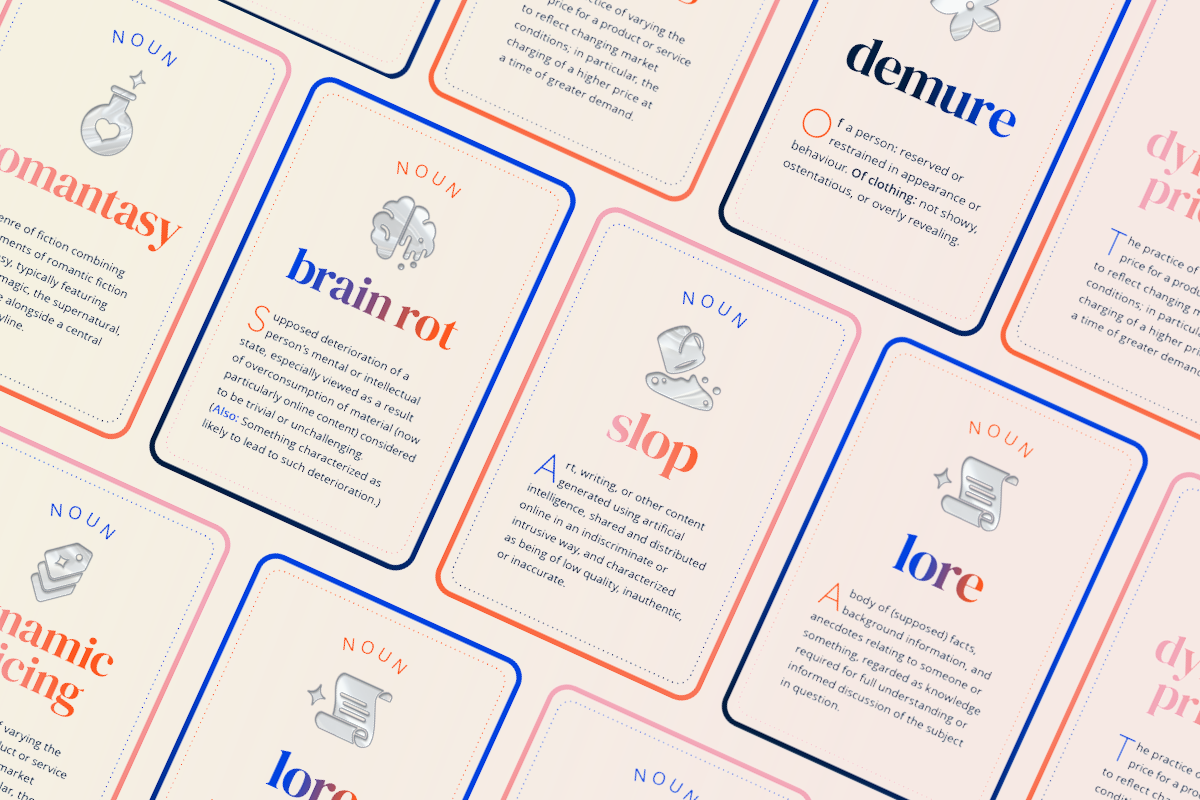Each year, linguistic experts at Oxford University Press collaborate with the general public to nominate a word that encapsulates the spirit of contemporary society. For 2024, the title of Oxford Word of the Year has been awarded to “brain rot.” “Brain rot” is defined as the “supposed deterioration of a person’s mental or intellectual state, especially viewed as a result of overconsumption of material (now particularly online content) considered to be trivial or unchallenging.” The term poignantly highlights concerns regarding the impact of consuming low-quality online content in the digital landscape.
How ‘Brain Rot’ Took Over Our Minds
In recent months, “brain rot” has gained increasing relevance, particularly on social media platforms like TikTok, where it has resonated with Gen Z and Gen Alpha communities. This phenomenon has captivated online users and attracted attention from mainstream journalism, reflecting widespread apprehensions about the harmful consequences of excessive online content consumption.

Cultural Significance
Adding to its cultural significance, “brain rot” is frequently used humorously or self-deprecatingly within online communities. It is notably associated with viral phenomena such as Alexey Gerasimov’s Skibidi Toilet video series, featuring anthropomorphic toilets, and the user-generated “only in Ohio” memes, which showcase bizarre occurrences in that state. This cultural trend has given rise to a new lexicon, introducing terms like “skibidi,” denoting something nonsensical, and “Ohio,” used to describe something embarrassing or odd. Such expressions illustrate how phrases from viral online culture increasingly permeate everyday conversation.
Mental Health Implications
Furthermore, there is a growing and serious dialogue surrounding the potential mental health implications stemming from extensive engagement with this type of content, particularly among children and young people. As highlighted by Oxford University Press, earlier this year, the Newport Institute, a U.S. Young Adult Mental Health & Substance Abuse Treatment Center, published guidance aimed at helping individuals recognize and address ‘brain rot.’ This resource offers practical strategies to identify the condition, characterized by the effects of consuming excessive low-quality online content. For more detailed information, you can find the guidance here: Newport Institute on Brain Rot.
In the following video titled “Can Internet Scrolling Cause Brain Rot? | Health Minute,” Jenn Sullivan from 11Alive (via CNN ) discusses the impact of binge-watching low-quality online content on mental health, specifically addressing how such behavior can lead to what is now referred to as “brain rot.”
Other Words That Defined 2024: The Shortlist
Although “brain rot” was crowned the winner, it is worth mentioning the other five words that were shortlisted, as they reflect current societal themes and concerns. Here are the five words and expressions that competed for this year’s title:
SLOP
slop (n.): Art, writing, or other content generated using artificial intelligence, shared and distributed online in an indiscriminate or intrusive way, and characterized as being of low quality, inauthentic, or inaccurate.

DEMURE
demure (adj.): Of a person: reserved or restrained in appearance or behaviour. Of clothing: not showy, ostentatious, or overly revealing.
In the following video segment on Good Morning America, ABC News contributor Mike Muse discusses the emerging “demure” trend that has recently gained traction on TikTok. He highlights how American TikToker Jools Lebron popularized this trend. As Mike Muse explains, “demure means being simplistic, authentic, and being okay with just being okay, not being too loud, too aggressive, or too soft; just being ‘demure.'”
DYNAMIC PRICING
dynamic pricing (n.): The practice of varying the price for a product or service to reflect changing market conditions; in particular, the charging of a higher price at a time of greater demand.
Dynamic pricing enables digital platforms to rapidly adapt to changing market conditions. For example, as explained by Kate Gibson on the Harvard Business School Online website, Amazon Marketplace uses dynamic pricing to compete in the e-commerce industry, where 35 percent of all retail sales are expected to occur by 2027. Using real-time data, Amazon not only matches or beats competitors’ prices but also tailors its own to customers’ preferences, browsing histories, and purchase behaviors.
LORE
lore (n.): A body of (supposed) facts, background information, and anecdotes relating to someone or something, regarded as knowledge required for full understanding or informed discussion of the subject in question.
In recent years, the term “lore” has exploded in popularity, especially within the gaming community, with discussions surrounding titles like “Elden Ring,” where lore covers all the information related to the game’s world and mythos, including rich backstories and character histories. Fans eagerly dive into YouTube videos dissecting the lore of “Dark Souls” or “Genshin Impact,” while social media platforms are filled with memes referencing lore that enriches their favorite universes. This shift underscores a cultural trend where deep narrative engagement enhances the overall experience of storytelling in modern media.
ROMANTASY
romantasy (n.): A genre of fiction combining elements of romantic fiction and fantasy, typically featuring themes of magic, the supernatural, or adventure alongside a central romantic storyline.
In the article “Romantasy 101: Here’s Where to Start Reading the Hottest Genre of 2024” on People, Claire Legrand, author of A Crown of Ivy and Glass and a romantasy expert, explains, “One of the hottest words in the publishing industry right now is ‘romantasy.’ Romantasy is an umbrella term for books that combine the genres of fantasy and romance. Sometimes these books lean more toward the fantasy side; sometimes, romance is the primary focus.”
In a world where “brain rot” challenges our focus, we scroll through “slop,” follow “demure” trends, dive into the “lore” of favorite games, enjoy “romantasy” stories, and stay alert to “dynamic pricing” changes. These terms reflect the language of our times, where attention is fleeting, trends evolve rapidly, and we adapt to a constantly shifting environment with a vocabulary that keeps pace.








